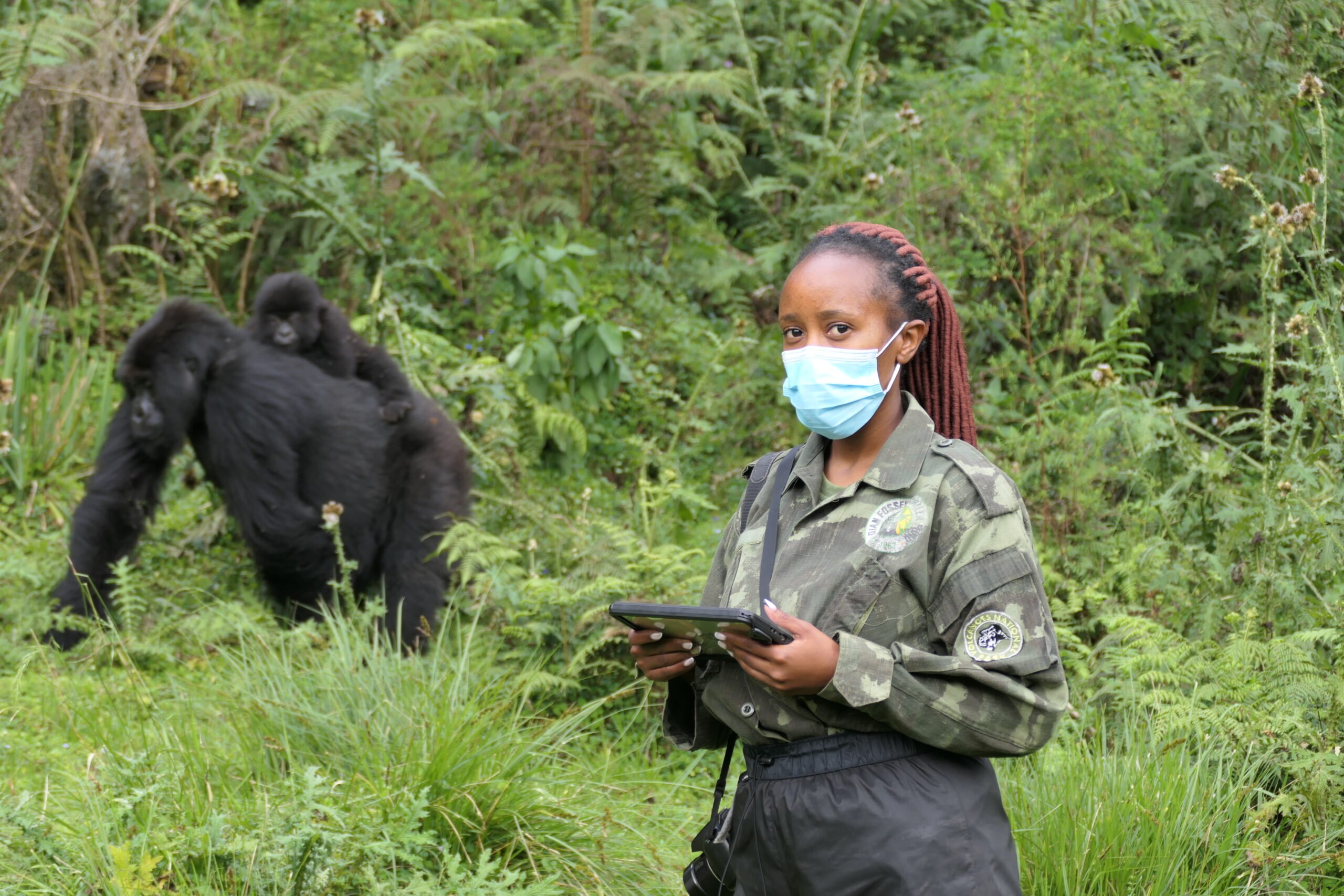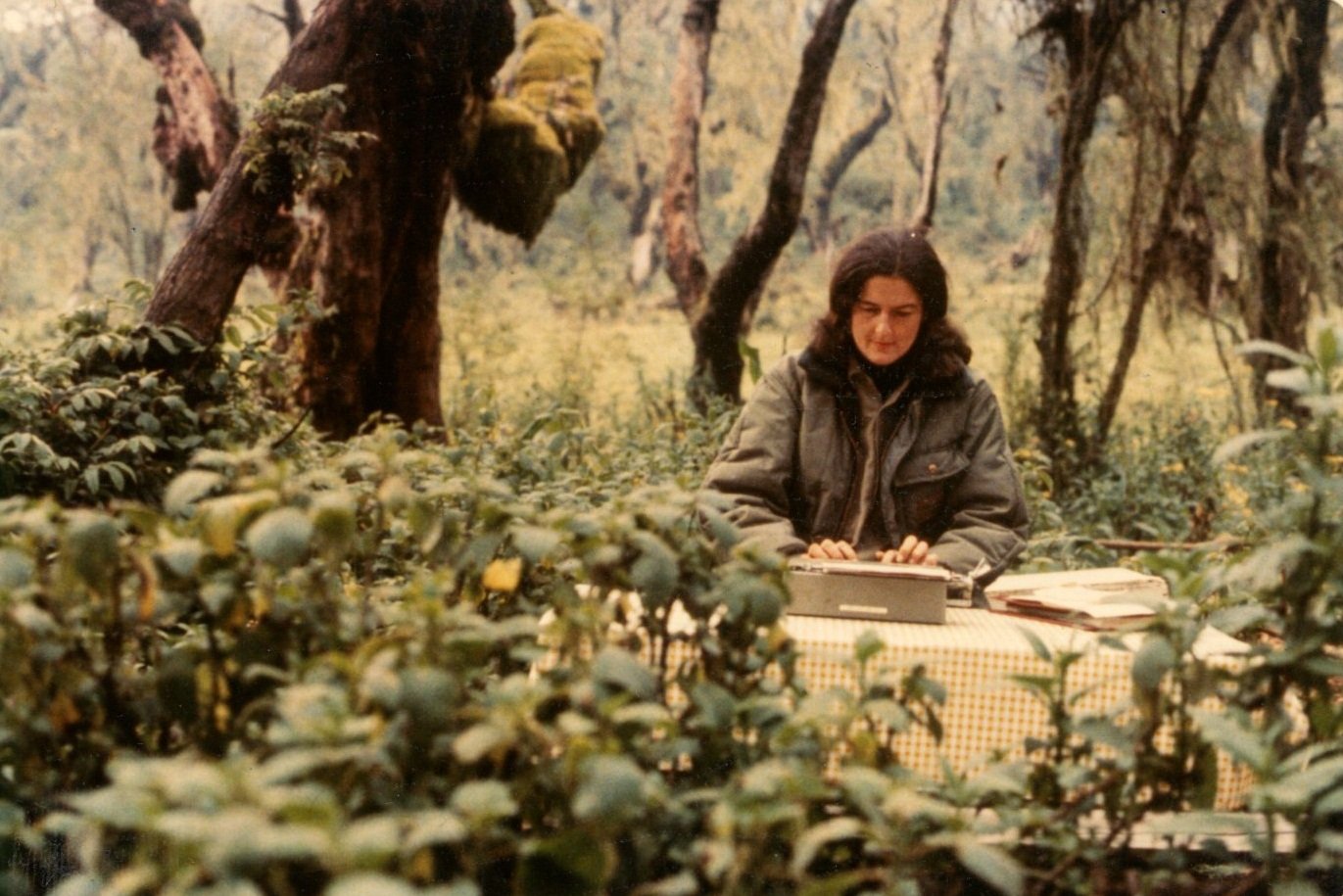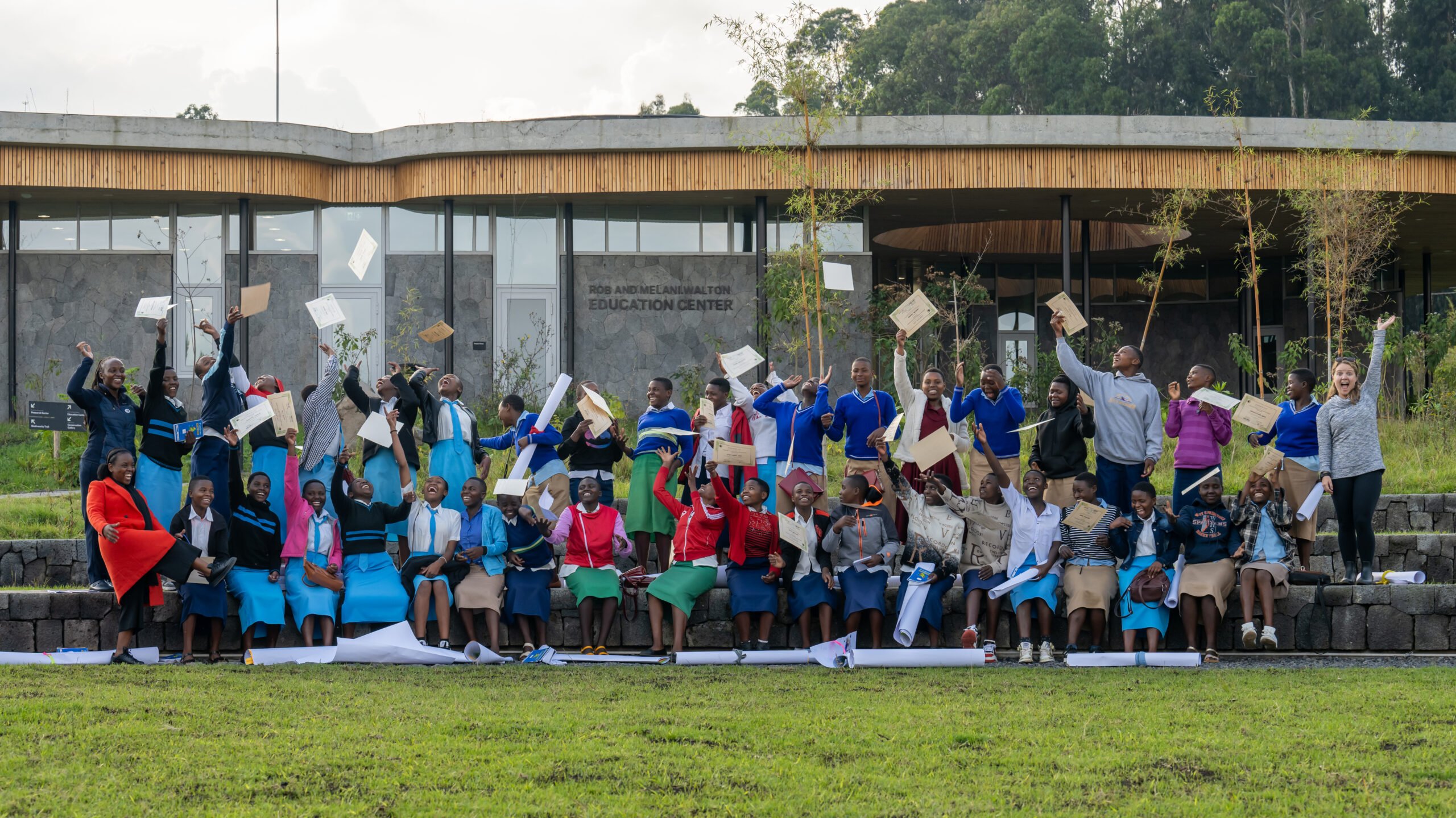Since 2003, the Dian Fossey Gorilla Fund has partnered with the University of Rwanda, as part of our capacity-building program to help train the next generation of conservationists and other scientists. These are the people who will help guide the future of the mountain gorillas, other endangered species and wildlife, so it is important to help them acquire the necessary skills and experience.

Currently, about 400 college biology students come through Karisoke each year, for a variety of courses, internships and research projects. One of the most significant of these is what we call the “memoir” program, which is a year-long process during which 8-14 senior students from the University of Rwanda develop, carry out, write up and present a research project, or bachelor’s thesis, related to conservation, gorillas or other topics pertaining to Volcanoes National Park where the gorillas live. During the year, the Fossey Fund and its partners – particularly Dr. Kristen Lukas and Austin Leeds from the Cleveland Metroparks Zoo – provide a variety of training, including data entry and analysis, research project design, scientific writing techniques and more. Cleveland Metroparks Zoo also provides funding for this program, training at Karisoke twice a year, and year-round assistance with the writing phases of the students’ work.
At this time of year it’s very exciting at Karisoke because this is when last year’s students are completing their memoirs and a group of new students are just starting theirs.
“These students are among the best, brightest, passionate, and most hardworking students around,” says Dr. Lukas. “I treasure the time I spend with them because they are eager to learn and demonstrate incredible potential as Rwanda’s future conservationists. It is humbling and very rewarding to play even a small role in their professional development.”
“The advanced training in conservation and science that we provide through this program not only prepares these students for the next phase of their educations or for employment in conservation, but also provides us with a mechanism for identifying top talent – of the 30 students trained between 2014-2017, for example, nine are now on staff at the Fossey Fund’s Karisoke Research Center,” Dr. Lukas adds.
The memoir program really works!
This program serves a unique role in Rwanda and is demonstrably effective, with 86 percent of all those who do the program moving on to careers in conservation or to advanced education in the field. Those now working at Karisoke are serving in research, laboratory, education and other areas of our programs. For example, our biodiversity program manager, Deogratias Tuyisingize, was one of the first to study in this program, in 2004, and now, in addition to all his work with our programs, he is also working on his Ph.D. studying endangered golden monkeys. Tuyisingize is now also one of the trainers for new students coming through this program.

Also exciting is our expansion of this model to our programs in the Democratic Republic of Congo, where we are starting to work with local universities. Our Congo program director, Urbain Ngobobo, and Congo research manager, Dr. Damien Caillaud, have both been teaching courses at Bukavu University, with plans to expand to other institutions of higher learning. Now, the first senior student is arriving at our Nkuba Conservation Area for an internship, as we begin the next step of this expansion.

The student topics are diverse and unique
Each student in our memoirs program develops his or her own idea for research, and we are always excited by the wide variety of topics they choose. In the 2018-2019 group of students, some of the topics include:
- Use of key food plant species by the mountain gorillas
- Impact of conservation movies (which the Fossey Fund offers) on community awareness
- The diversity of the Coleoptera beetle in disturbed and undisturbed habitats in Volcanoes National Park
- How knowledge gained by pupils in our primary conservation education program affects parents’ knowledge, and
- Quantification of defecation rates in mountain gorillas!






